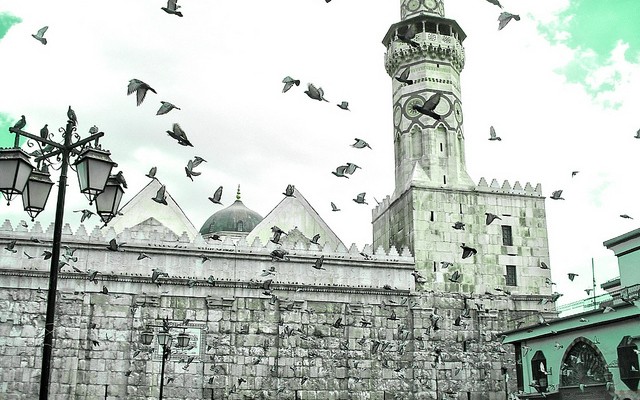They are eating the photographs
Because
there is no bread
The photographs proliferate
Your excavated back looks suspended
we are looking down on you
And you are caught on the crumbs of buildings
we are standing on that
which stood on you
The space between the crumbled parts
of which you are a part
exists
For your ashen powdered self is
Dimensional and recognisable
I lifted a city off your face
My little ash-boy
My little dust-puppet
Of concrete grey and dusted edifices
Your black eyes are curious
Your toes are lifelike
Your black eyes are liquid
Your cheeks curve like apples
Your black eyes are alive
As we try not to see
Image: Damascus / Игорь М
Read the rest of Overland 227
If you enjoyed this poem, buy the issue




